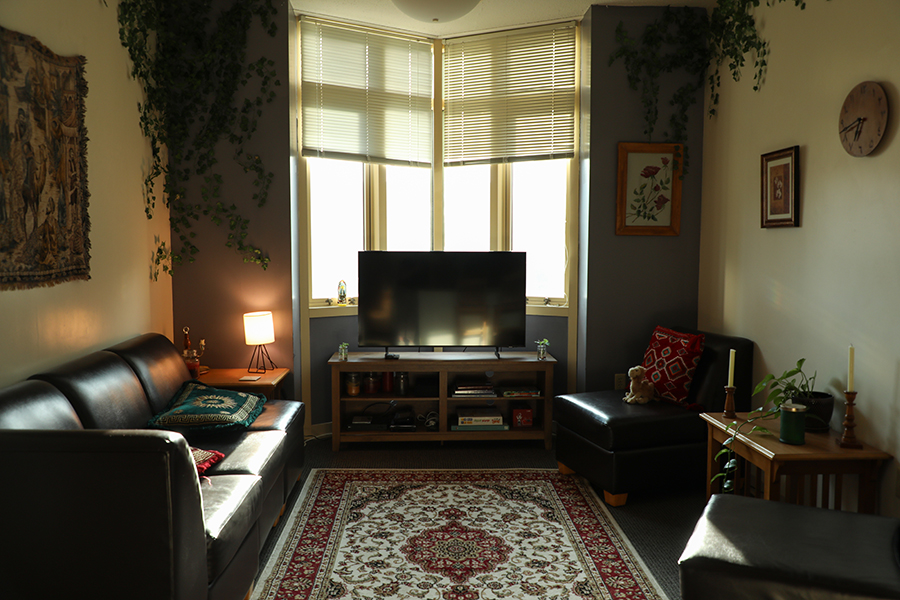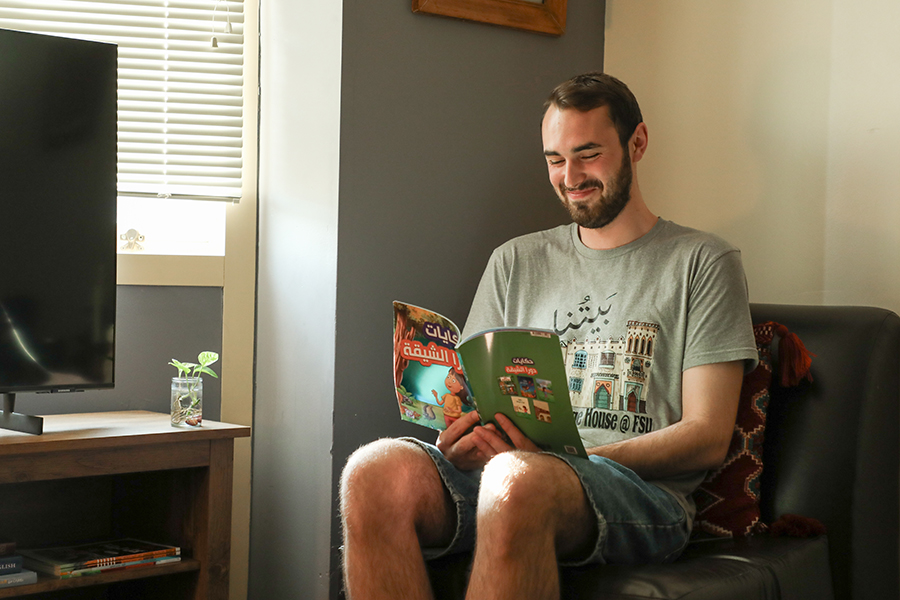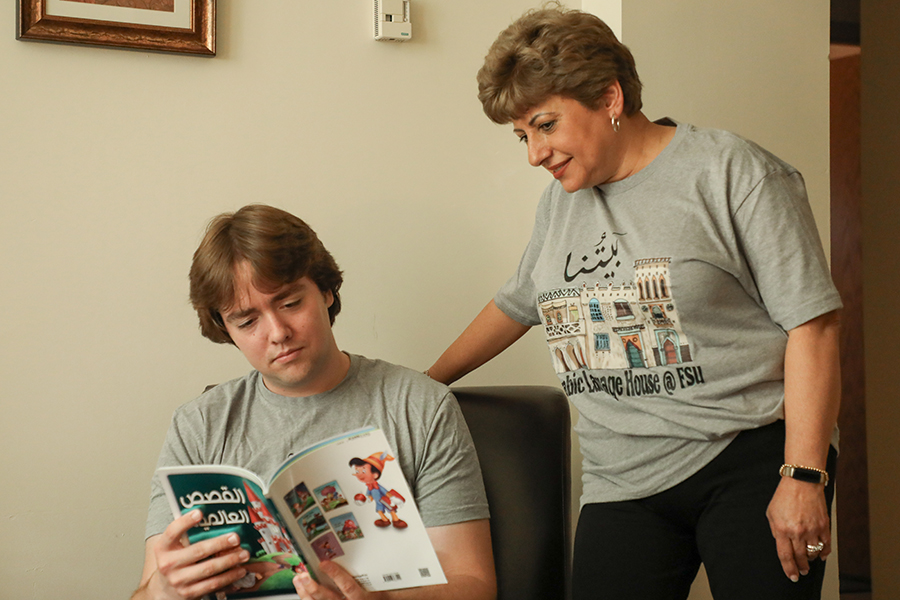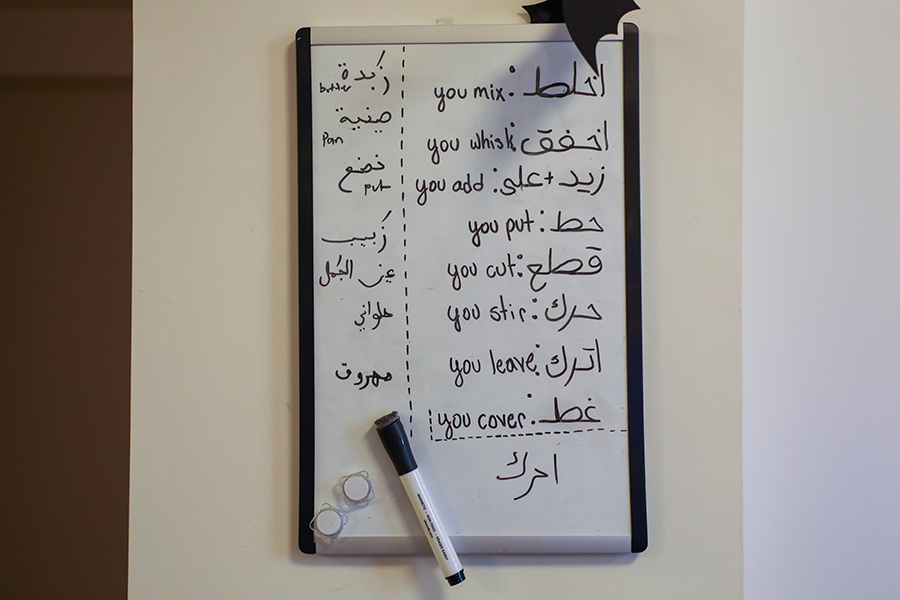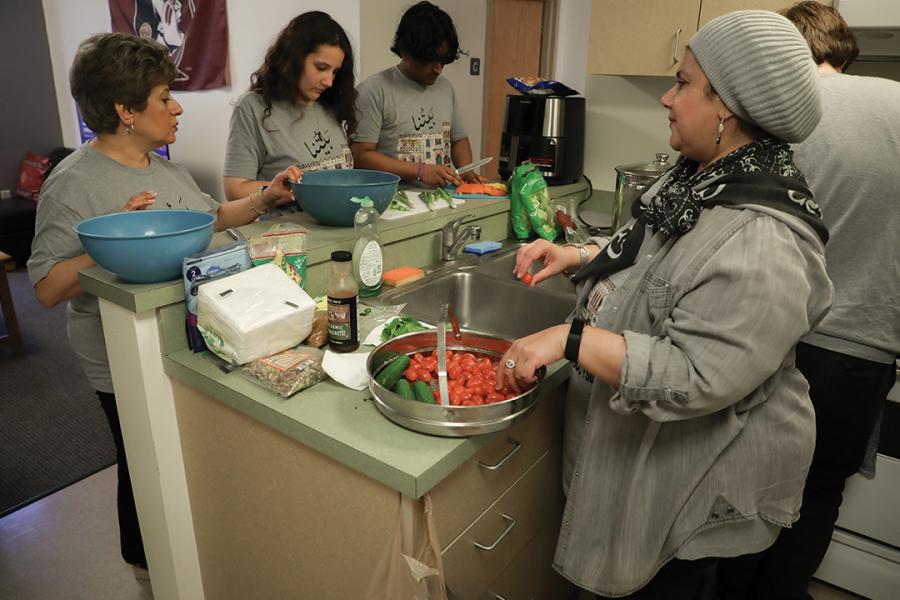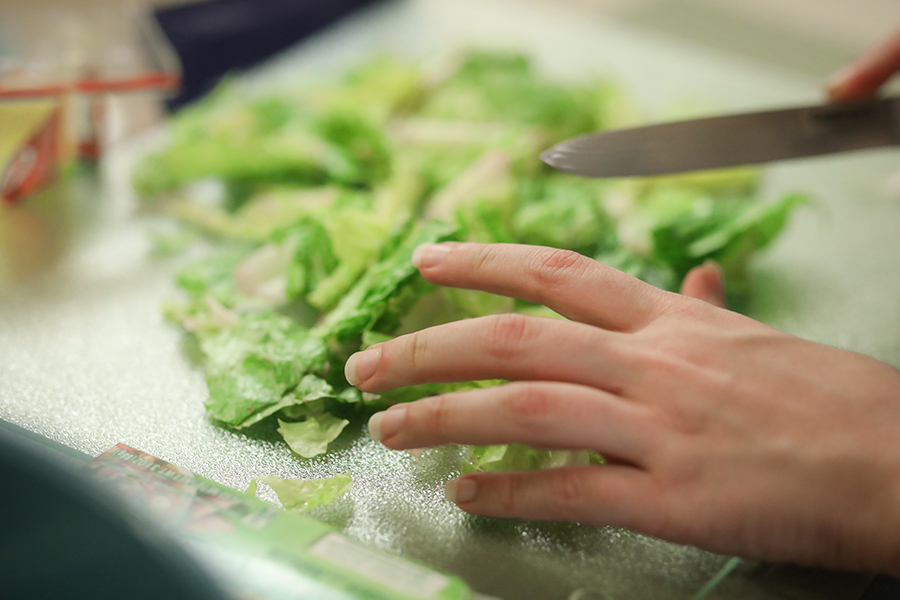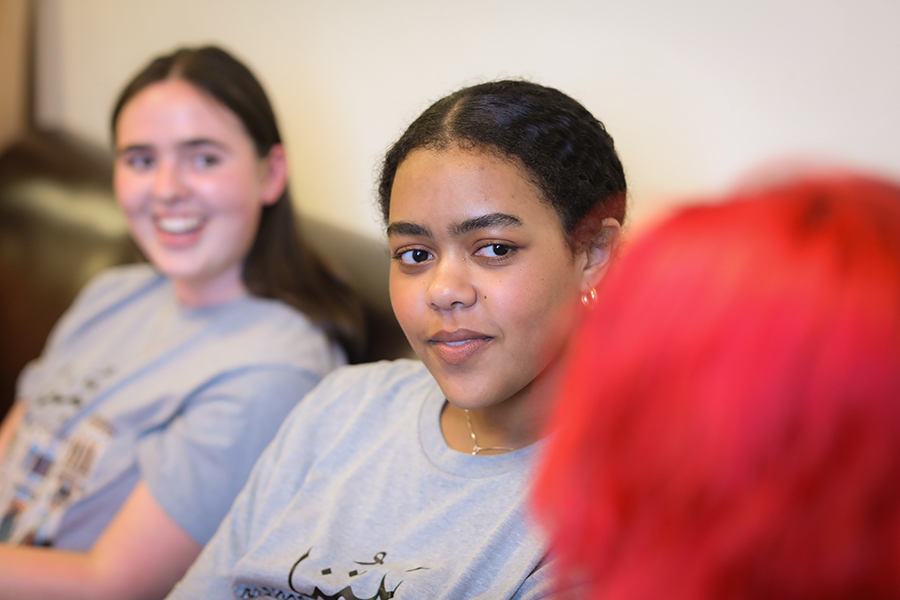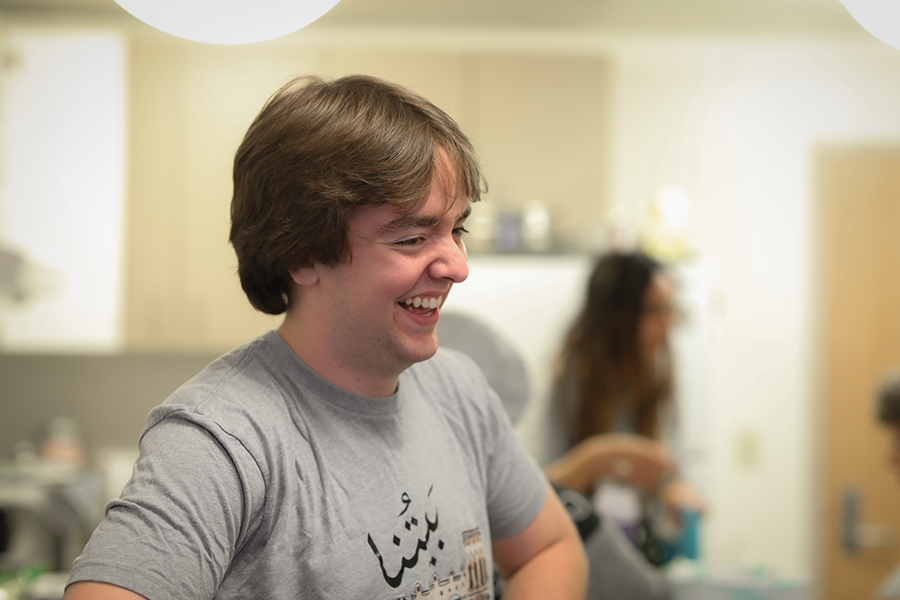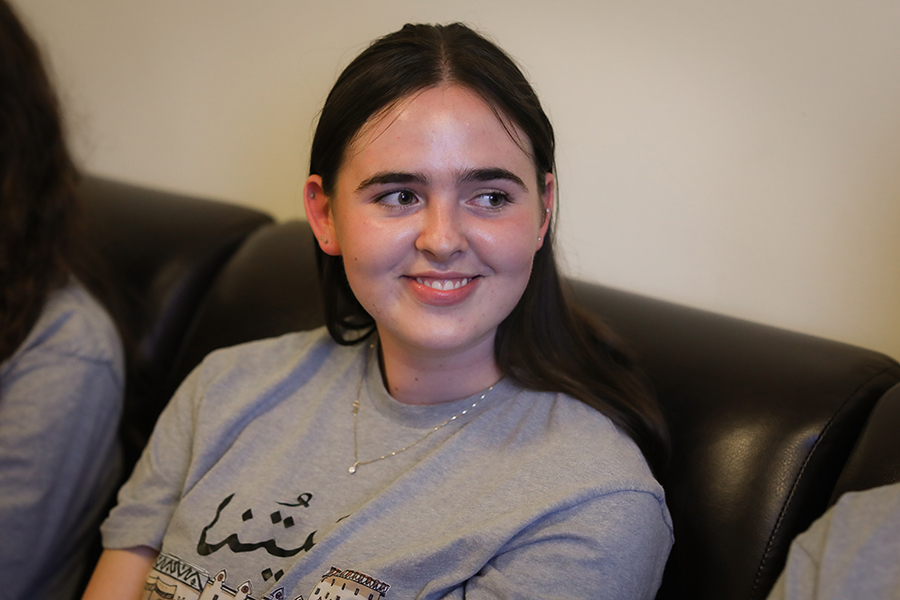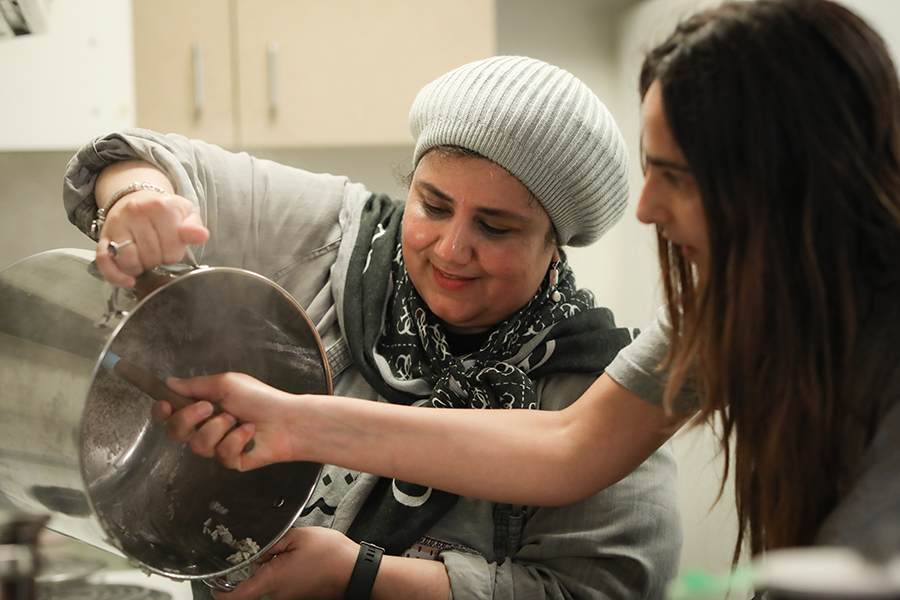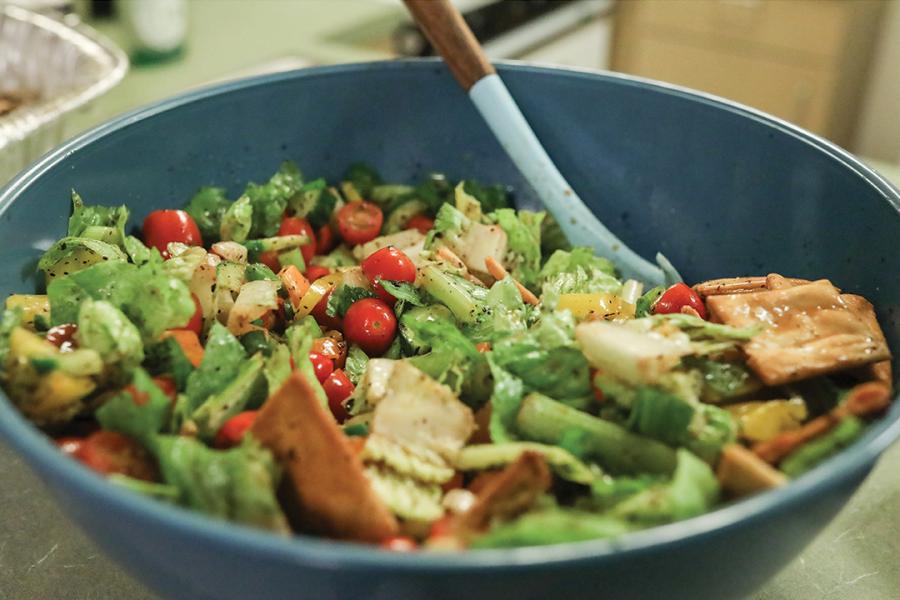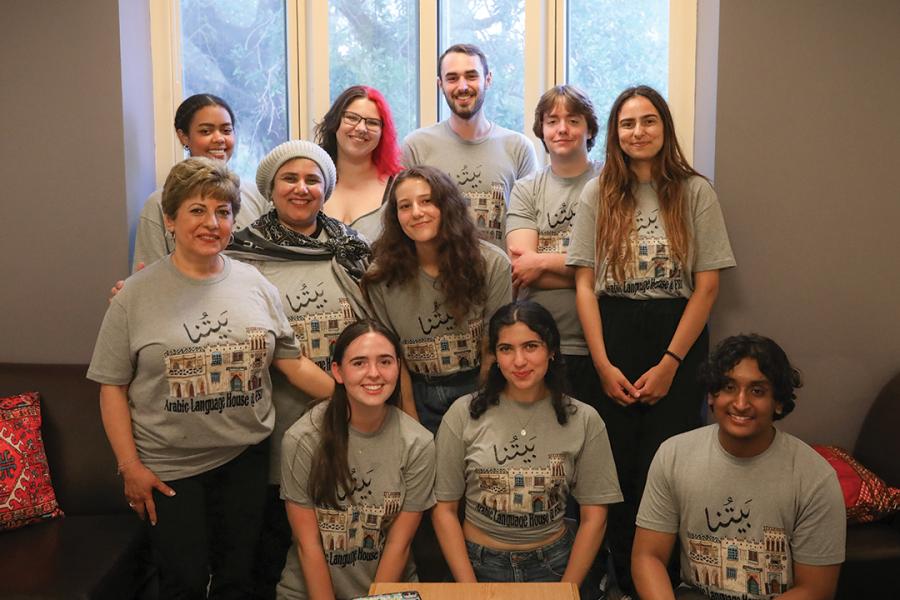Live-in Learning
FSU Arabic Language House makes study-abroad level cultural immersion possible on campus
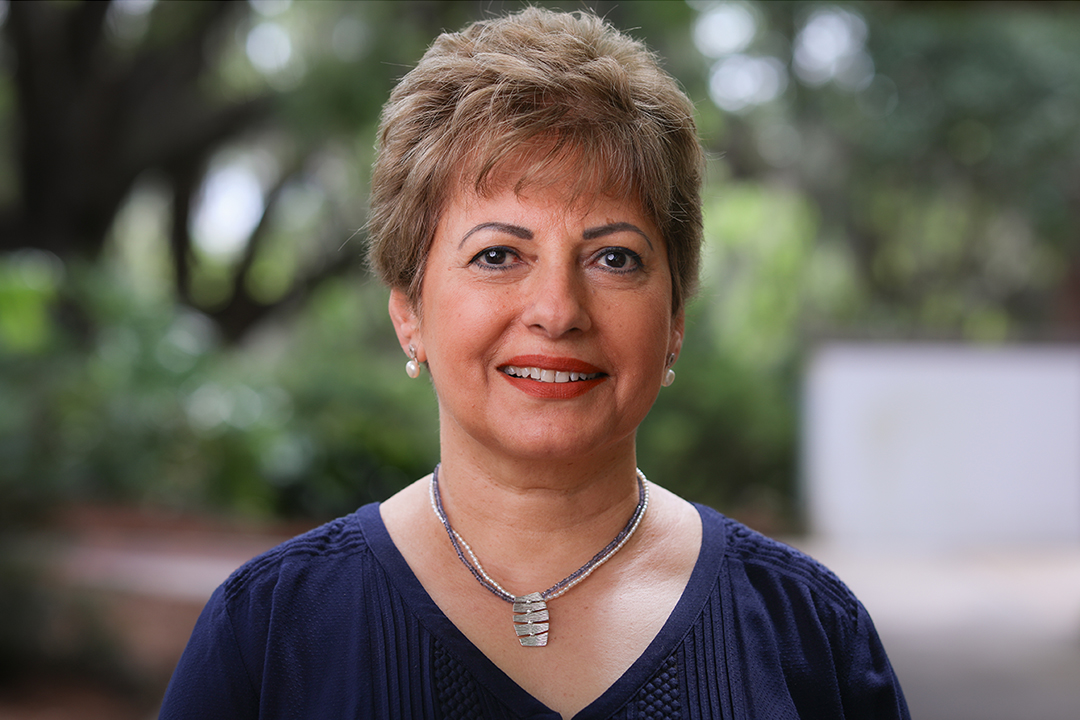
The U.S. Foreign Service Institute, part of the U.S. Department of State, ranks Arabic as a category four language, placing it among the most difficult for English speakers to learn, requiring tremendous effort, time, and focus to build fluency. Arabic is also on the list of languages less commonly taught in American schools that the State Department considers critical to present and future U.S. national security and prosperity.
Studying abroad is typically the gold standard for the level of immersion needed to achieve language and cultural fluency; however, the costs associated can be a barrier. But what if an immersive environment was just steps rather than a flight — or three — away?
The Florida State University Arabic Language House offers students a passport to immersion without ever leaving campus. Inside, shelves are lined with Arabic-language books, films and games. The aroma of traditional Middle Eastern cuisine fills the air as residents gather for group cooking sessions. Amid the bustle of classes, residents return to a home base where every conversation increases their proficiency.
“Living in the language house is an excellent opportunity to develop language skills without ever leaving the country,” said Zeina Schlenoff, founding director of the Arabic Language House, director of the FSU Middle East Center, and a teaching professor of Arabic in the Department of Modern Languages and Linguistics.
Launched in Fall 2023, the ALH welcomes Arabic learners from any major or year. Students reside in Ragans Hall alongside a Fulbright foreign language teaching assistant who leads workshops, discussions and activities. Mais Nassar, this year’s assistant and a native Arabic speaker from Jerusalem, found the ALH opportunity crucial in choosing which university to attend.
“Among the most beloved traditions in the ALH is cooking day,” Nassar said. “The kitchen is filled with laughter, questions and conversations.”
Schlenoff had been researching and planning for a language house for a decade when the College of Arts and Sciences granted approval to move forward in 2022. Currently, FSU is the only Florida university with a live-in foreign language house, but the concept is present at other U.S. institutions, including Cornell University in New York and Virginia’s William and Mary University.
FSU’s first cohort served as a pilot to assess student interest and program success. Applicants in the first class were required to have taken a minimum of one semester of Arabic to ensure basic experience in reading and writing.
“Living in the ALH has helped me excel in my coursework and vocabulary beyond what’s possible in the classroom,” said Matthew Dottor, ALH resident and a senior majoring in Middle Eastern Studies and Italian. “I plan to work as an Arabic interpreter and translator in the future, and this program supports my linguistic and cultural growth in a way that is vital to my success.”
To start and end each semester, residents participate in an oral proficiency interview that establishes their learning level: novice, intermediate, advanced, superior or distinguished, with subdivisions for low, mid or high. Novices may understand individual words and formulaic phrases, while those with superior proficiency can easily discuss abstract ideas.
Research consistently shows immersion, whether as part of a year-long study abroad or a short-term program, positively affects students’ linguistic abilities. Schlenoff proudly reports that every student in the pilot cohort advanced at least one sublevel, performed better in Arabic classes, and gained confidence with the language since moving into the ALH.
“The Arabic Language House is a stepping stone toward studying abroad,” said ALH resident Nadia Rassech, a senior majoring in Middle Eastern Studies and international affairs. “I’ve built fluency and confidence in a comfortable environment before I spend the summer in Muscat, Oman and the fall semester in Fez, Morocco.”
Starting in Fall 2024, the Language House program will expand to include another critical language — the Japanese Language House has 11 students committed for the 2024-2025 academic year.
“The language house provides a unique experience for participating students, and the concept fits exceptionally well into our mission,” said Sam Huckaba, the college’s dean. “As a comprehensive institution, we strive to provide the best possible environment for students to learn and grow.”
These expansions are part of Schlenoff’s aim to grow the program and its opportunities.
“My goal has always been to build a global community at FSU,” Schlenoff said. “I hope to have students from multiple target languages on the same floor come together for cultural exchange and to help our students on their path to becoming global citizens.”

